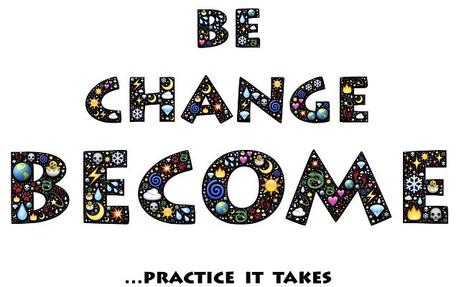
Change is the Only Constant.
I once read an editorial called 'Everything Has A Shelf Life.' The author's premise was that nothing lasts forever; change happens every day. Expected and unexpected, good and bad, change is part of life. Handling change is essential in the workplace. Just look at the headlines of your company's recent press releases. Chances are you'll find topics like strategic re-alignment, consolidation, new management, outsourcing, even acquisition or sale. These are triggers for big changes that could affect you directly. Likewise, friends and family can change jobs, marry, divorce, move away or move nearby. These are change triggers for your personal life.
Handling change is necessary, and it's not always easy. My simple CIO Model can help you manage the changes in your life more effectively.
The CIO Change Model
The model breaks changes into 3 kinds: Changes within your span of control, changes within your span of influence, and changes outside both of these circles. Picture it like a target with 3 rings. You approach each type differently. The most important step in the model is figuring out which kind of change you are dealing with. Once you understand whether you can control or influence the decision, or not, you can react accordingly.

Control
Changes within your span of control are the simplest to approach. You make the choice to move to another city, change jobs, or sell your home. Although the choice itself might be difficult, you are the decision-maker. What you say will happen, happens. This powerful feeling of control takes much of the stress out of the change. Think through your options, including the reason to change and the implications, and the effects on people you care about. Rely on facts, not solely on other people's opinions. Then make the decision that is right for you and go forward with a clear mind.
Influence
New work assignments, a child's college selection, what town to relocate to, whether your loved one should treat an illness aggressively or not...many changes are in this group. First, figure out how you can influence the decision. Focus your energy where it can have some effect. Then be as factual as possible. Acknowledge your emotions, then set them aside. Crying is not the best way to convince your boss that you deserve that plum assignment. Nor is guilt a positive strategy for convincing your best friend not to move to Alaska. Don't threaten, unless you are prepared to follow through. Instead, use verifiable facts: remind your manager of your business successes over the past 2 years. Compare your friend's love of summer with the number of days below freezing in Juneau. Influence where you can. Then recognize that someone else owns the decision. If they don't decide as you would have, make the best of it.
Outside
I call these the changes that you can't do anything about anyway. Why waste energy stressing over them? Imagine that your company is going to be sold. You don't know when, or to whom, but management announced that they are looking for a buyer. You cannot influence what happens; it's all up to outside buyers and the Board of Directors. Most of us endlessly debate the possibilities with family, friends, and colleagues. It's human nature. It's also pointless. Yes, they will sell the company, and yes, your situation will change. Nothing you say or do will change that fact. So don't waste energy on it! Instead, focus on doing your work well, and on developing your plan B: what to do if you lose your job as a result of the sale.

Chin Up and Move On
Once the decision is made, whether by you or by someone else, make the best of it. If you choose to move to a new city, explore everything it has to offer. If your best friend moves to Alaska, make plans to visit. And if you lose your job, take steps to find another. The good thing about our world of constant change is that if you don't like this outcome, you'll have another opportunity to change it soon!

Dr. Marne Platt is the President of Fundamental Capabilities and the author of Living Singlish: Your Life, Your Way. Originally a practicing veterinarian, she then built a successful career in the pharmaceutical industry, and later founded Fundamental Capabilities to 'pay it forward' by providing career development workshops and coaching for women. 'Living Singlish: Your Life, Your Way' is an 'older sister in your pocket' packed full of advice for young women on building their own independent and exciting life.

